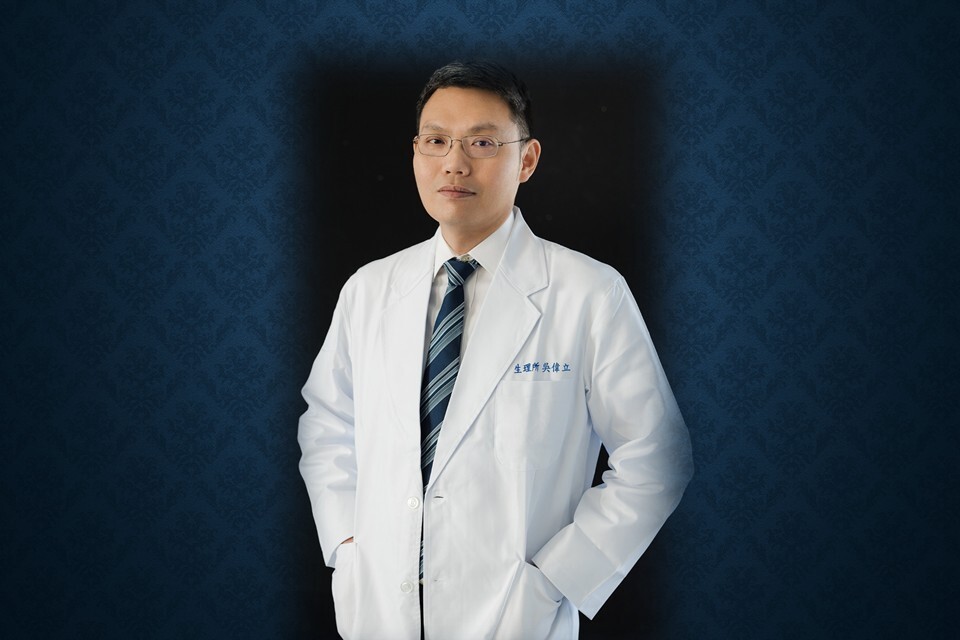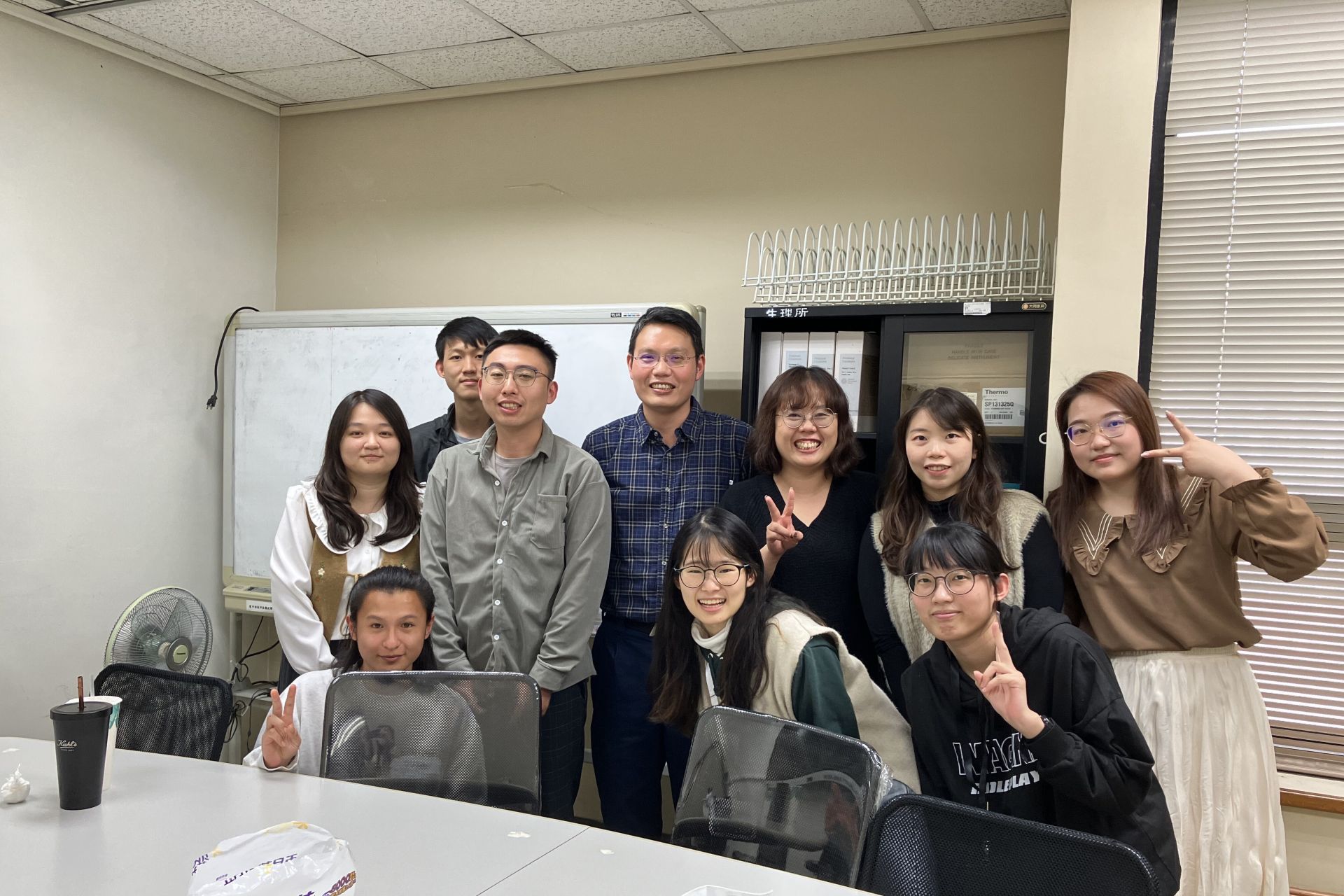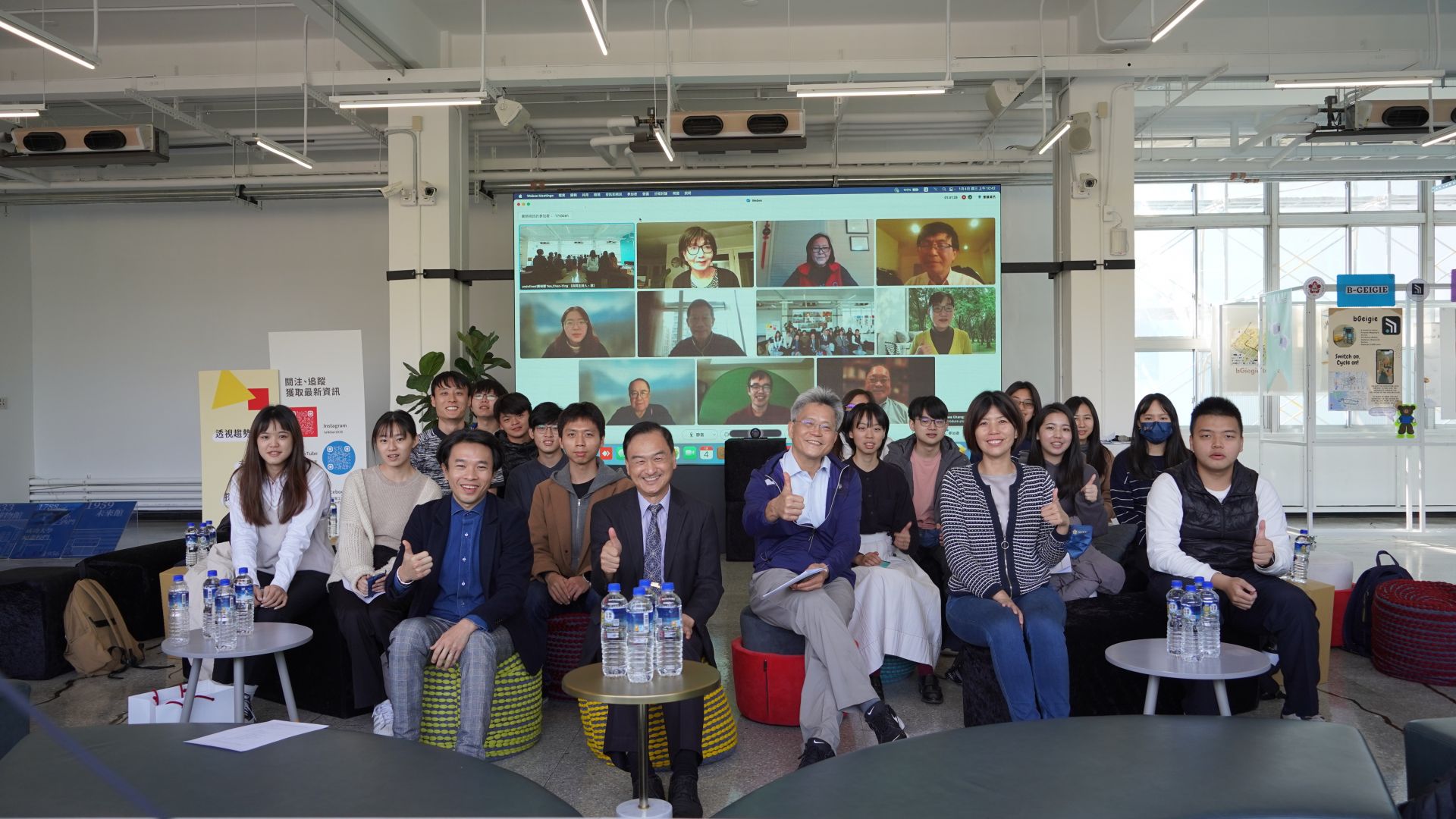Associate Professor Wei-Li Wu from the Department and Institute of Physiology at National Cheng Kung University (NCKU) College of Medicine has long been dedicated to the frontier field of neurobiology of the gut-brain axis. In December 2024, he was selected as a member of the sixth cohort of the European Molecular Biology Organization (EMBO) Global Investigators. Over the next four years, EMBO will provide support, including funding and opportunities for international collaboration, to help propel his scientific research to new heights and breakthroughs.
Among the sixth cohort of EMBO Global Investigators, only two scientists from Taiwan were selected: Assistant Research Fellow Chih-Hang Wu from the Institute of Plant and Microbial Biology at Academia Sinica and Associate Professor Wei-Li Wu from NCKU's Department and Institute of Physiology. (EMBO official website link: Eleven group leaders join the EMBO Global Investigator Network)
Associate Professor Wei-Li Wu specializes in neurobiology, gut-brain axis research, gut microbiomics, and behavioral physiology, with a particular focus on how gut microbiota regulate stress responses and threat management. His research findings have been published in leading international journals such as “Nature”, “Brain, Behavior, and Immunity”,“npj Biofilms and Microbiomes”, and “Journal of Biomedical Science”, garnering significant attention and recognition from the global academic community.
Prof. Wu stated that with the support of the EMBO Global Investigator Program, he will continue to delve into the interactions between gut microbiota and neural circuits in the brain. He hopes to provide innovative insights and groundbreaking solutions for the treatment of mental health conditions and neurological diseases. Additionally, being named an EMBO Global Investigator offers more opportunities to collaborate with world-class scholars, expanding the breadth and depth of interdisciplinary research and increasing the global impact of his findings.
Prof. Wu expressed his deep honor at being selected as an EMBO Global Investigator, extending heartfelt gratitude to NCKU, the College of Medicine, the Department of Physiology, the Institute of Basic Medical Sciences, and the National Science and Technology Council for their long-standing support. He also sincerely thanked all past and present members of his lab for their relentless efforts, dedication, and perseverance, which made this achievement possible.
He hopes that through the EMBO Global Investigator Program, academic exchanges between Taiwan and EU member states will be further strengthened, bringing greater international attention to Taiwan's scientific contributions. "Taiwan boasts many outstanding scholars and remarkable scientific achievements. I hope this international collaboration platform will showcase Taiwan’s scientific prowess to the world."
The European Molecular Biology Organization (EMBO), established in 1964, is a professional European organization dedicated to life sciences research and the promotion of international scientist exchanges. EMBO advances molecular biology by organizing training courses, seminars, conferences, publishing scientific journals, and supporting researchers’ scientific projects. Since 2019, the organization has launched the Global Investigator Network program, annually selecting early-career scientists with outstanding research potential from countries such as Taiwan, Singapore, India, and Chile to become Global Investigators. The program provides four years of funding for their research training and scientific exchange activities.
Since joining National Cheng Kung University in 2018, Associate Professor Wei-Li Wu has mentored 2 PhD students, 7 master’s students, and 7 undergraduate students, all actively participating in significant research projects. He has been awarded two consecutive three-year individual grants by the National Science and Technology Council (NSTC) and collaborated with numerous NCKU professors on brain science projects and three-year integrated research plans. Last year, he was also selected for the NSTC’s four-year "International Young Scholars Program" under the 2030 Next Generation Young Scholars Development Plan.
Professor Wei-Li Wu: Scopus
Among the sixth cohort of EMBO Global Investigators, only two scientists from Taiwan were selected: Assistant Research Fellow Chih-Hang Wu from the Institute of Plant and Microbial Biology at Academia Sinica and Associate Professor Wei-Li Wu from NCKU's Department and Institute of Physiology. (EMBO official website link: Eleven group leaders join the EMBO Global Investigator Network)
Associate Professor Wei-Li Wu specializes in neurobiology, gut-brain axis research, gut microbiomics, and behavioral physiology, with a particular focus on how gut microbiota regulate stress responses and threat management. His research findings have been published in leading international journals such as “Nature”, “Brain, Behavior, and Immunity”,“npj Biofilms and Microbiomes”, and “Journal of Biomedical Science”, garnering significant attention and recognition from the global academic community.
Prof. Wu stated that with the support of the EMBO Global Investigator Program, he will continue to delve into the interactions between gut microbiota and neural circuits in the brain. He hopes to provide innovative insights and groundbreaking solutions for the treatment of mental health conditions and neurological diseases. Additionally, being named an EMBO Global Investigator offers more opportunities to collaborate with world-class scholars, expanding the breadth and depth of interdisciplinary research and increasing the global impact of his findings.
Prof. Wu expressed his deep honor at being selected as an EMBO Global Investigator, extending heartfelt gratitude to NCKU, the College of Medicine, the Department of Physiology, the Institute of Basic Medical Sciences, and the National Science and Technology Council for their long-standing support. He also sincerely thanked all past and present members of his lab for their relentless efforts, dedication, and perseverance, which made this achievement possible.
He hopes that through the EMBO Global Investigator Program, academic exchanges between Taiwan and EU member states will be further strengthened, bringing greater international attention to Taiwan's scientific contributions. "Taiwan boasts many outstanding scholars and remarkable scientific achievements. I hope this international collaboration platform will showcase Taiwan’s scientific prowess to the world."
The European Molecular Biology Organization (EMBO), established in 1964, is a professional European organization dedicated to life sciences research and the promotion of international scientist exchanges. EMBO advances molecular biology by organizing training courses, seminars, conferences, publishing scientific journals, and supporting researchers’ scientific projects. Since 2019, the organization has launched the Global Investigator Network program, annually selecting early-career scientists with outstanding research potential from countries such as Taiwan, Singapore, India, and Chile to become Global Investigators. The program provides four years of funding for their research training and scientific exchange activities.
Since joining National Cheng Kung University in 2018, Associate Professor Wei-Li Wu has mentored 2 PhD students, 7 master’s students, and 7 undergraduate students, all actively participating in significant research projects. He has been awarded two consecutive three-year individual grants by the National Science and Technology Council (NSTC) and collaborated with numerous NCKU professors on brain science projects and three-year integrated research plans. Last year, he was also selected for the NSTC’s four-year "International Young Scholars Program" under the 2030 Next Generation Young Scholars Development Plan.
Professor Wei-Li Wu: Scopus

Associate Professor Wei-Li Wu from the Department and Institute of Physiology, NCKU College of Medicine, Selected as an EMBO Global Investigator

Associate Professor Wei-Li Wu (back row, fourth from the right) from the Department and Institute of Physiology, College of Medicine, NCKU, with his student team.

SDG4The first Nova Scholars meeting brings together NCKU North America alumni to inspire young scholars.
View more
SDG4Qisda Group Supports NCKU’s Department of Electrical Engineering in Establishing an Innovation Space
View more



















